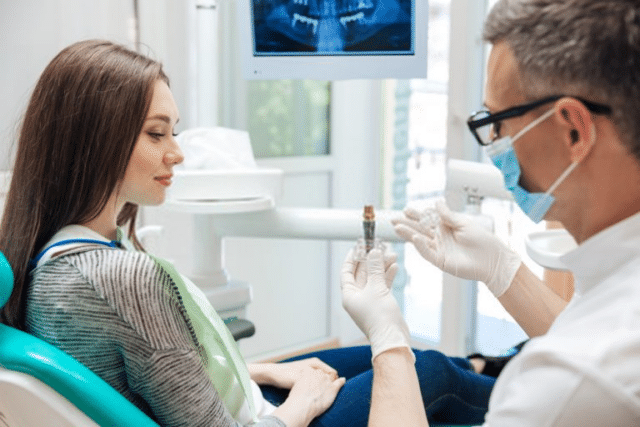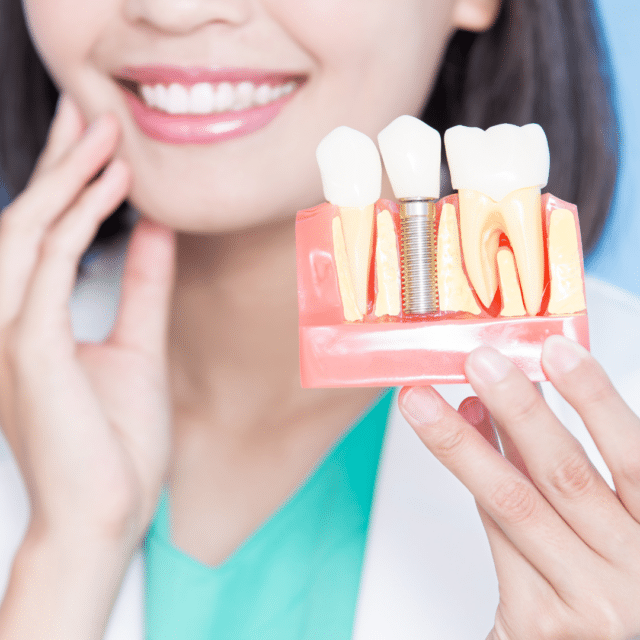Oral health is often neglected in the modern world, and its importance is only realized when dental problems interfere with day-to-day activities. A modern dentistry wonder, dental implants are revolutionary in their ability to restore oral health and general well-being.
Importance of Oral Health
Beyond just a beautiful smile, good dental health promotes general wellbeing by making it easier to eat, communicate, and interact with others with confidence. Timely treatment of oral problems is essential for preventing systemic disorders.
Understanding Dental Implants
Dental implants are made up of an implant, an abutment, and a crown that resemble real teeth. Through osseointegration, they fuse with the jawbone, giving the crown a strong base.
Long-Term Benefit of Dental Implants
Better Oral Health: Prevents problems such as neighboring teeth moving, misalignment, and more tooth loss.
Preventing Bone Loss: Maintains face structure and stimulates the jawbone to stop deterioration.
Preservation of face Structure: Maintains the appearance and usefulness of face characteristics.
Preserving Natural Teeth: Unlike conventional bridges, implant surgery does not harm natural teeth in any way.
Better Speaking and Chewing: Provides a more organic chewing sensation, increases self-assurance, and enhances speaking intelligibility.
Increase in Self-Confidence: Self-esteem is raised by a full, healthy smile.
The Durability of Dental Implants
Dental implants are made of titanium, which guarantees stability throughout time. They are a wise investment in oral health because they can last a lifetime with the right maintenance.
Maintaining Dental Implants
Regular Oral Hygiene: Brushing, flossing, and using an antimicrobial mouthwash are similar to taking care of natural teeth.
Frequent dental examinations: essential for keeping an eye on the condition of the implant and quickly resolving any problems.
Nutritional Points to Remember: Implant and general oral health are supported by a well-balanced, nutrient-rich diet.
Long-term advantages for oral health, general wellbeing, and self-esteem are delivered by dental implants. In addition to replacing lost teeth, they avoid problems, preserve facial structure, and give people lifetime confidence in their smiles. See your dentist to learn more about the possibilities of dental implants if you’re thinking about improving your oral health. Without delay, embrace a future filled with radiant, healthy smiles.
Reserve a FREE Consultation
ARCHPOINT has been changing the lives of patients for many years and providing outstanding results. Don’t just take our word for it! – Check out our Patient Testimonial. Get a professional opinion from one of ARCHPOINT Implant Dentistry experts and learn how dental implants can change your smile. We offer free initial consultations—including a 3D scan—for anyone considering dental implants in Dallas, Southlake or Ft. Worth. Call ARCHPOINT Implant Dentistry to reserve a no-pressure dental implant consultation.














